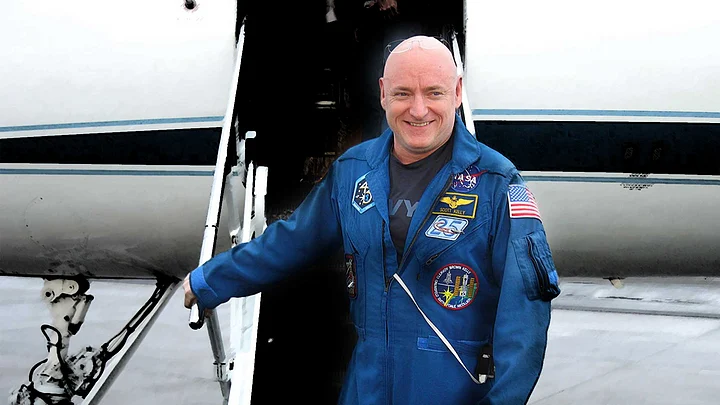American astronaut Scott Kelly and Russian cosmonaut Mikhail Kornienko spent almost a year on the International Space Station (ISS).
In those 340 days, they orbited earth over 5,440 times. That’s a lot of spinning for a scientifically advanced merry-go-round ride.
In the time spent in space, both explorers didn’t walk or shower, they drank water that was recycled urine and sweat. Living in space is not easy, and here’s what happens to humans if they live just for a year in space.
The most common physiological changes result from the lack of gravity. When astronauts first experience weightlessness, their sensorimotor system becomes immediately disrupted.
Brittle Bones and Muscle Weakness
Astronauts float in space so the bones in the legs, hips and spine experience a significant decrease in load bearing. This leads to bone breakdown and releases calcium, leaving the bone more brittle and weak. The release of calcium can also increase the risk of kidney stone formation and bone fractures.
Extended spaceflights also result in less work for lower limbs. The muscles can become weak, which could result in injuries during exploration missions.
Bloated Face and Smaller Hearts
Due to lack of gravity in space, blood flow increases to the upper part of the body. As a result, astronauts often have a puffy face and the circumference of their legs reduce.
The heart doesn’t work as hard in space as on earth. Over a time of one year this can lead to a decrease in the size of the heart. Exposure to space radiation can also lead to accelerated coronary heart disease in astronauts.
Change in Body Clock
The inner ear functions in space explorers take a hit. The inner ear is sensitive to gravity, and under lack of gravity, astronauts can experience disorientation, space motion sickness and a loss of sense of direction. Once back on earth, they are known to face difficulties in standing up, walking and turning.
Imagine a drunk man trying to walk.
Also there is no 24-hour day/light cycle in space. It takes some time for an astronaut’s body clock to readjust to day/light cycle once they are back on earth.
The Ultimate Height Enhancing Remedy
Scott Kelly reportedly grew a bit taller after spending a year in space. This is a known phenomenon as disks of the spinal column face almost zero compression in space due to the lack of gravity.
This causes the disks to expand which are usually compressed due to earth’s gravity. So the spine lengthens, and the astronaut gets taller. In Scott Kelly’s case he grew taller by as much as two inches.
How do Astronauts Poop?
And now to answer the final question of how did they take a dump in space. Watch the video below to know.

